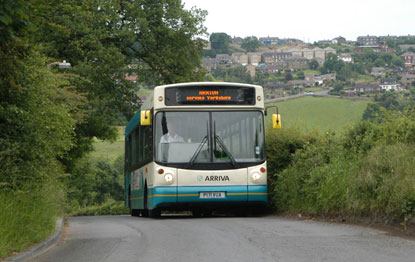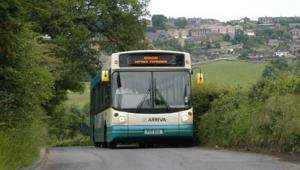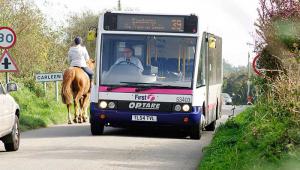MPs on the transport select committee have called for councils to be given more control over local bus services to allow them to set service standards, timetables and fares.
 In a report examining bus services across England, the committee attacked the Competition Commission for expecting local bus services to improve through head-to-head rivalry on the roads.
In a report examining bus services across England, the committee attacked the Competition Commission for expecting local bus services to improve through head-to-head rivalry on the roads.The commission reported on the local bus market last year and said on-road competition would secure better standards and lower fares.
But the MPs said this was ‘probably unrealistic and may even be undesirable’.
The committee’s Competition in the local bus market report looked at whether giving local authorities greater powers over buses would improve the deregulated system that has been in place everywhere in Britain bar London since 1985.
Across England, some £2.4bn a year is spent on supporting buses, of which £934m is from local authorities supporting otherwise unviable routes, £1m is for the concessionary fares scheme for elderly or disabled people and the remainder is a fuel subsidy known as Bus Service Operators' Grant.
London’s buses are regulated. Operators compete by bidding for routes, rather than by running rival vehicles. Transport for London sets the routes, fares and frequencies and takes the financial risk involved.
The committee said the London model, known as franchising, should be available to other transport authorities.
‘We are not convinced that the Competition Commission’s vision of widespread and sustained head-to-head competition is realistic or desirable,’ the committee said.
‘Previous “bus wars” led to instability and confusion that was in the interests of neither operators nor passengers.’
Committee chair Louise Ellman added: ‘More competition among bus operators may improve services in some areas but many routes simply cannot sustain more than one operator.’
The MPs’ report said the franchising option might in particular suit metropolitan areas, but warned they would need London’s level of public subsidy to succeed. This is about three times higher than elsewhere.
Another option was to establish formal partnerships between local authorities and operators, the MPs said. They could. for example, install bus lanes in return for particular service standards.
‘Local authorities should be free to choose between the partnership and franchise options and the government should take an even-handed approach,’ the committee said.
Responding to the report, local transport minister Norman Baker said: ‘Improving partnerships between commercial bus companies and local councils must be the focus of improving bus services for passengers.’
A Local Government Association spokesman said: ‘We welcome the committee's conclusion that local authorities should have a real choice to franchise bus services, and the overall tone of the report, which stresses the need for councils and local people to have a greater say over their bus services, is very encouraging.
‘We’re also pleased with the conclusion that the Competition Commission was wrong to call for more on-road competition which, as the committee states, is unrealistic and can lead to service instability.’





















